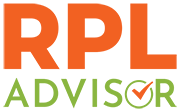Dip of Accounting - FNS50222
Qualification Overview:
Qualification Name:
Dip of Accounting
Qualification Code and Units of Competency:
FNS50222
Processing time:
You can get your desired qualification through RPL pathways within four weeks of getting the sufficient information and evidence of the supporting documents.
Why study Dip of Accounting?
This qualification corresponds to professional accounting employment roles in the financial services industry and other sectors. These professionals analyse and assess information from various sources while applying solutions to a variety of problems, many of which are complicated. In accordance with predetermined parameters, they take initiative to organise, coordinate, and analyse both their own work as well as the work of others.
Regulatory requirements must be met in order to perform work tasks in the occupational fields where this certification may be used.
How RPL ADVISOR assist you?
We can give you a FREE RPL Quote today !
RPL ADVISOR recognises the need to convert an overseas qualification into an Australian national qualification, and we offer a variety of fast and simple RPL distance training programs through our partner RTOs to meet any relevant requirements for Australia.
RPL ADVISOR can turn your expertise, talents, knowledge, or overseas credentials into a nationally recognised Australian certification through a comprehensive partner network of Registered Training Organisations (RTOs). The RPL evaluation process can often be done with established proof of your skills and does not necessitate further review.
- Photo (latest)
- Passport
- Resume / CV
- Payslips/work contract/ABN if self-employed
- Letter of Employment (onshore / offshore)
- Current employment contracts
- Evidence of overseas qualifications (if available)
- Transcripts or assessments from related previous qualifications.
- Videos or photos at your work (at least 2 from each task)
- Apprenticeship papers (if available)
- OHS/WHS policies and procedures
- Safe work method statements
- Job safety analysis (if available)
- Evaluation: One of experienced RPL ADVISOR consultants can conduct a free, no-obligation RPL skills check.
- Your Experience: Compiling and submitting your ‘Experience Portfolio’, which includes photographs and videos of you on the job, references, past credentials, and your latest resume, among other things.
- RTO Reviews the Evidence: Using an RPL assessment, a certified assessor from one of our collaborating RTOs can review the evidence and decide whether you are competent in the units for that certification.
- Interview: If all supporting documents meet the requirement of the desired qualification, then the RTO may take your interview.
- Your Certificate: If the RTO determines that you are qualified in all relevant units of competency, the Registered Training Organisation will grant you a certificate.
Dip of Accounting
Total number of units = 11
6 core units plus
5 elective units
The elective units consist of:
- 3 from the electives below.
Of the remaining 2 units:
- up to 2 may be from the electives
- up to 2 may be from Certificate IV, Diploma or Advanced Diploma in any currently endorsed training package or accredited course.
The elective units chosen must be relevant to the work outcome and meet local industry needs.
CORE UNITS
FNSACC501 Provide financial and business performance information
FNSACC502 Prepare tax documentation for individuals**
FNSACC503 Manage budgets and forecasts
FNSACC504* Prepare financial reports for corporate entities
FNSACC506 Implement and maintain internal control procedures
FNSACC507 Provide management accounting information
Elective Units
BSBFIA401 Prepare financial reports
BSBITU402 Develop and use complex spreadsheets
BSBLDR402 Lead effective workplace relationships
FNSACC301 Process financial transactions and extract interim reports
FNSACC505 Establish and maintain accounting information systems
FNSACC601* Prepare and administer tax documentation for legal entities**
FNSACC607* Evaluate business performance
FNSFMK505 Comply with financial services legislation and industry codes of practice
FNSINC601 Apply economic principles to work in the financial services industry
FNSINC602 Interpret and use financial statistics and tools
FNSORG505 Prepare financial reports to meet statutory requirements
FNSORG506 Prepare financial forecasts and projections
FNSTPB503 Apply legal principles in consumer and contract law***
FNSTPB504 Apply legal principles in corporations and trusts law***
FNSTPB505 Apply legal principles in property law***
*Note the following prerequisite unit requirements:
| Unit in this qualification | Prerequisite unit |
| FNSACC504 Prepare financial reports for corporate entities | BSBFIA401 Prepare financial reports FNSACC301 Process financial transactions and extract interim reports |
| FNSACC601 Prepare and administer tax documentation for legal entities | FNSACC502 Prepare tax documentation for individuals |
| FNSACC607 Evaluate business performance | FNSACC501 Provide financial and business performance information |
** Units included in the Tax Practitioners Board approved course in Australian taxation law:
FNSSS00008 Taxation law for tax agents Skill Set (Tax documentation) – FNSACC502 and FNSACC601
*** Units included in the Tax Practitioners Board approved course in commercial law: FNSSS00005 Commercial law for tax agent Skill Set

Related Other Qualifications
- Cert IV in Project Management Practice – BSB40920
- Cert IV in New Small Business – BSB40320
- Cert IV in Marketing and Communication – BSB40820
- Cert IV in Leadership and Management – BSB40520
- Cert IV in Human Resources – BSB40420
- Cert IV in Small Business Management – BSB40320
- Cert IV in Financial Services – FNS41820
- Cert IV in Finance and Mortgage Broking – FNS40811
- Cert IV in Customer Engagement – BSB40315
- Cert IV in Business Sales – BSB40120
- Cert IV in Business Administration – BSB40120
- Cert IV in Business – BSB40120
- Cert IV in Accounting and Bookkeeping – FNS40222
- Cert III in Business Administration – BSB30120
- Cert III in Customer Engagement – BSB30215
- Cert III in Business Administration (Education) – BSB30915
- Cert III in Business – BSB30120
- Cert III in Info Digital Media and Technology – ICT30115
- Cert II in Skills for Work and Voc Pathways – FSK20113
- Cert II in Business – BSB20115
- Cert II in Customer Engagement – BSB20120
- Graduate Cert in Management (Learning) – BSB80120
- Graduate Dip of Strategic Leadership – BSB80320
- Graduate Dip of Portfolio Management – BSB80220
- Adv Dip of Business – BSB60120
- Adv Dip of Integrated Risk Management – FNS60822
- Adv Dip of Leadership and Management – BSB60420
- Adv Dip of Management (Human Resources) – BSB60320
- Adv Dip of Marketing and Communication – BSB60520
- Adv Dip of Program Management – BSB60720
- Adv Dip of Work Health and Safety – BSB60619
- Dip of Business – BSB50120
- Dip of Accounting – FNS50222
- Dip of Quality Auditing – BSB51615
- Dip of Customer Engagement – BSB50315
- Dip of Business Administration – BSB50120
- Dip of Human Resources Management – BSB50320
- Dip of Leadership and Management – BSB50420
- Dip of Marketing and Communication – BSB50620
- Dip of Work Health and Safety – BSB51319
